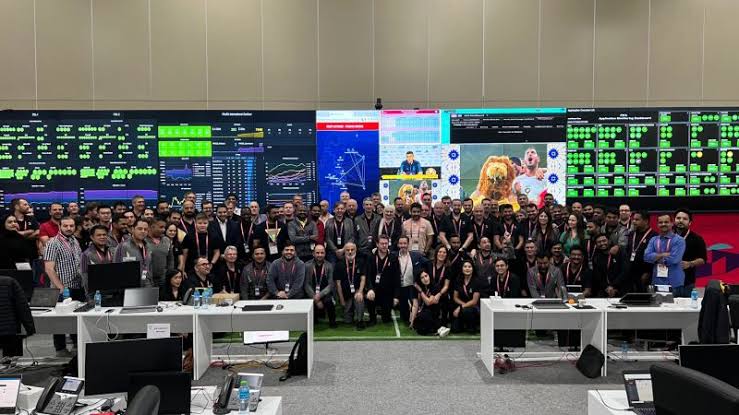In the world of sports, few events command as much global attention as the FIFA World Cup. However, behind the spectacle lies a complex web of media rights and financial interests that can stifle free press and limit the public’s access to unbiased information. Mainstream media outlets, heavily reliant on lucrative broadcasting rights, often find themselves in a precarious position, where critical reporting on FIFA could jeopardize their financial stability. In contrast, citizen journalism emerges as a resilient force, ensuring that the truth reaches the public, unfiltered and unthreatened.
The Power of Media Rights
FIFA’s control over media rights is a significant source of revenue, with broadcasters around the world vying for the chance to air the World Cup. These rights are not just about broadcasting games; they encompass a range of exclusive content, interviews, and behind-the-scenes access that can drive viewership and advertising revenue. For mainstream media outlets, securing these rights is crucial for their financial health.

FIFA have often used their power of accreditation of journalists to enforce censorship and suppression of negative stories.
However, this dependency creates a conflict of interest. Media organizations that hold or aspire to hold these rights may be reluctant to publish content that could be perceived as critical of FIFA. The fear of losing access to one of the world’s most-watched sporting events can lead to self-censorship, where negative stories about FIFA’s practices, leadership, or controversies are downplayed or ignored.
FIFA’s Influence and Allegations
Since Gianni Infantino became FIFA president in 2016, the organization has faced numerous allegations of corruption and misconduct. Infantino himself has been under investigation by Swiss prosecutors for secret meetings with the former Swiss Attorney General, Michael Lauber. These meetings, held without proper documentation, have raised serious questions about transparency and accountability within FIFA.
Despite these allegations, mainstream media coverage has often been muted. The potential loss of media rights and the financial implications thereof can deter outlets from pursuing in-depth investigations or publishing critical pieces. This dynamic allows FIFA to maintain a positive public image, even in the face of significant controversies.
The Role of Citizen Journalism
In this landscape, citizen journalism plays a crucial role. Unlike mainstream media, citizen journalists are not beholden to corporate interests or media rights deals. They operate independently, driven by a commitment to uncovering the truth and informing the public. Platforms like blogs, social media, and independent news websites provide citizen journalists with the tools to reach a global audience.
Citizen journalism ensures that critical stories about FIFA and its leadership are not buried. These journalists can report on issues such as corruption, human rights abuses, and the ethical implications of FIFA’s decisions without fear of financial repercussions. Their work is essential for maintaining transparency and holding powerful organizations accountable.
Ensuring Access to Information
The rise of citizen journalism is a testament to the resilience of free speech and the public’s right to know. While mainstream media may be constrained by financial interests, citizen journalists continue to provide real-time information and unfiltered truth. Their efforts ensure that the public remains informed about the actions of powerful entities like FIFA, fostering a more transparent and accountable society.
Conclusion
FIFA’s influence over mainstream media through media rights deals poses a significant threat to free press and unbiased reporting. However, the rise of citizen journalism offers a beacon of hope, ensuring that critical information reaches the public. As we navigate this complex media landscape, it is essential to support and protect the voices of independent journalists who strive to uphold the principles of transparency and accountability.
Emiliano FIFAntinion

